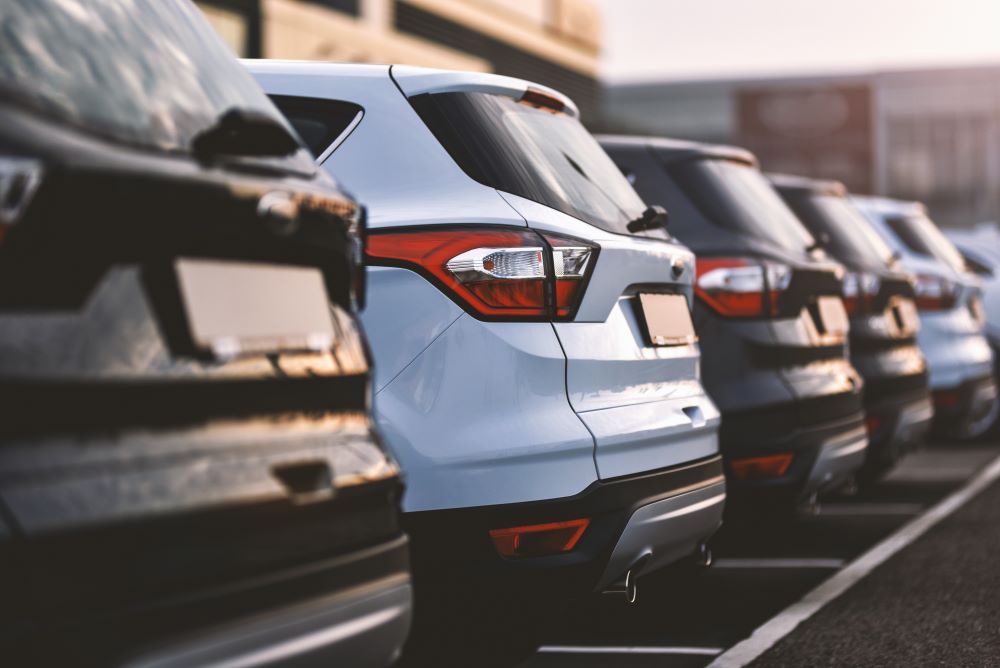Police Impound Car Lots - Your Ultimate Buying Guide
Police impound car lots can be filled with hidden gems at affordable prices, but you need to know how to navigate the process. This guide covers how these lots operate, where to find them, the steps to secure a great deal, and how to evaluate vehicles for quality and value before making your purchase.

Step-by-Step Guide to Buying at Police Impound Lots
The process of purchasing from police impound lots follows a structured approach that begins with research. Start by identifying local law enforcement agencies in your area that conduct regular vehicle sales. Most police departments, sheriff’s offices, and state agencies maintain schedules for their impound auctions, typically held monthly or quarterly.
Next, visit the impound lot during designated inspection periods, usually 1-2 days before the auction. This critical step allows you to examine vehicles firsthand, check for mechanical issues, and assess overall condition. Bring a flashlight, magnet for detecting body filler, and basic tools if permitted. Document any damage or concerns, as all sales are typically final with no warranties or returns.
Finally, prepare your financing and bidding strategy. Most impound sales require cash, cashier’s checks, or certified funds, with full payment due immediately after winning a bid. Set a firm budget limit and stick to it, factoring in additional costs like towing, registration, and potential repairs.
How to Register for an Impound Car Auction
Registration requirements vary by jurisdiction, but most agencies require advance registration before participating in auctions. Contact the conducting agency 1-2 weeks before the scheduled sale to obtain registration forms and specific requirements. Common prerequisites include valid government-issued identification, proof of address, and sometimes a refundable deposit ranging from $100 to $500.
Many agencies now offer online registration through their websites or third-party auction platforms. Complete all paperwork accurately and submit required documentation by the specified deadline. Some locations allow same-day registration, but advance registration ensures smoother check-in and bidding processes on auction day.
Best Practices for Safe Auction Purchases
Successful impound car purchases require strategic preparation and disciplined bidding. Arrive early on auction day to re-examine vehicles you’re interested in and observe the auctioneer’s rhythm and bidding patterns. Professional dealers often attend these auctions, so expect competitive bidding on desirable vehicles.
Maintain realistic expectations about vehicle condition. Impounded vehicles may have mechanical issues, body damage, or missing keys. Budget for immediate repairs and factor these costs into your maximum bid. Avoid emotional bidding and stick to your predetermined price limits, regardless of auction excitement.
Verify all legal requirements before bidding. Ensure the vehicle has a clear title and understand your state’s requirements for transferring ownership of formerly impounded vehicles. Some vehicles may have liens or legal complications that could affect your ability to register and drive them legally.
What to Look for in Auction Vehicle Listings
Vehicle listings at impound auctions typically provide basic information including make, model, year, VIN number, and general condition notes. However, these descriptions are often minimal, making physical inspection crucial. Look for vehicles with complete documentation, including titles and any maintenance records that may have been left in the vehicle.
Pay special attention to the reason for impoundment, as this can indicate potential issues. Vehicles impounded for DUI cases may have been better maintained than those abandoned on streets for extended periods. Check for signs of flood damage, accident history, and mechanical problems that might not be immediately apparent during brief inspections.
Review any available photos carefully if the auction includes online components. However, always prioritize in-person inspection over photo-based assessments, as lighting and angles can hide significant damage or wear.
Typical Pricing and Cost Considerations
Understanding the cost structure of impound vehicle purchases helps buyers make informed decisions and avoid unexpected expenses.
| Cost Category | Typical Range | Additional Notes |
|---|---|---|
| Vehicle Purchase Price | $500 - $8,000 | Varies by condition, age, and model |
| Buyer’s Premium | 5% - 10% | Some auctions charge additional fees |
| Documentation Fees | $25 - $100 | Title transfer and processing |
| Towing/Transport | $100 - $300 | If vehicle doesn’t run |
Prices, rates, or cost estimates mentioned in this article are based on the latest available information but may change over time. Independent research is advised before making financial decisions.
How to Avoid Overpaying for an Impound Car
Research comparable vehicle values using resources like Kelley Blue Book, Edmunds, or local classified ads before attending auctions. Factor in the vehicle’s condition, missing features, and potential repair costs when establishing your maximum bid. Remember that impound vehicles typically sell below retail value, but competition can drive prices higher than expected.
Set a firm budget ceiling and leave when bidding exceeds your limit. Experienced buyers often identify multiple potential purchases rather than focusing on a single vehicle, providing flexibility when bidding becomes too competitive. Consider the total cost of ownership, including immediate repairs, registration fees, and insurance costs, when determining your maximum bid amount.
Monitor several auctions before participating to understand local market patterns and pricing trends. This knowledge helps identify genuine bargains and avoid overpaying due to auction excitement or limited experience with impound vehicle sales.
Police impound car lots present genuine opportunities for savvy buyers willing to invest time in research and preparation. Success requires understanding the process, realistic expectations about vehicle condition, and disciplined bidding strategies. While these purchases involve more risk than traditional dealership transactions, the potential savings make impound auctions attractive options for budget-conscious car buyers seeking reliable transportation or project vehicles.




